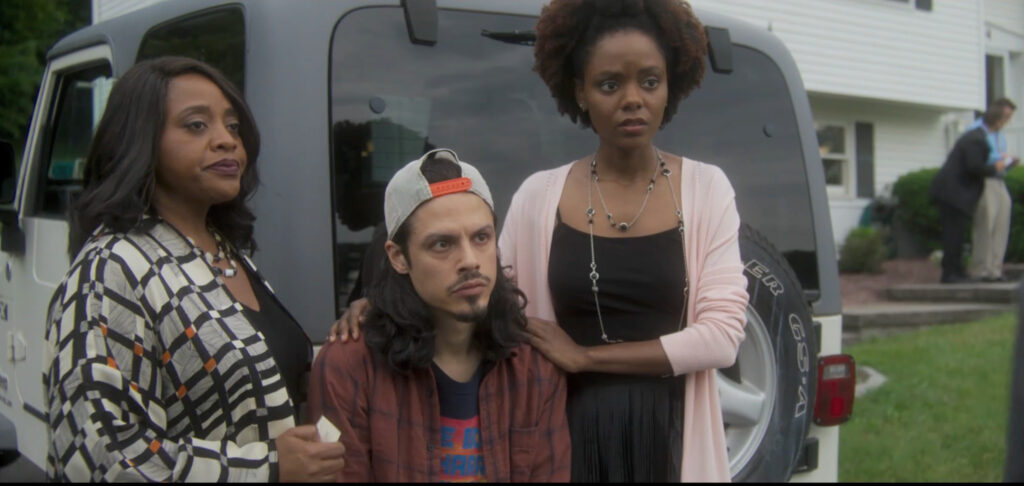A look at the queer thriller The Way Out with director Barry Jay
From writer/director Barry Jay (Ashes, Killer Therapy) comes the queer horror thriller The Way Out.
Starring Jonny Beauchamp (Penny Dreadful), Emmy winner Mike Manning (Teen Wolf, This is Us), Ashleigh Murray (Riverdale), and Sherri Shepherd (Life is Perfect), this riveting and unnerving nail-biter from Terror Films will be hitting digital platforms on February 10.
The Way Out tells the story of Alex (Beauchamp), an aspiring singer/songwriter who is struggling with drug addiction and alcoholism as a result of childhood abuse. After the death of his father and inheriting the family home, he takes in a roommate, a mysterious fighter named Shane (Manning), who takes Alex under his wing, teaching him how to fight back and stand up to his abusers. After initially seeing some positive change in his life, Shane’s unconventional ways soon lead Alex down a dark path that threatens his sobriety and his life…
Examining themes or trauma, revenge and recovery the film takes us to some unexpected places while giving the audience an insider’s view of what its like to struggle with sobriety. In advance of the film’s wide release, we sat down with out writer/ director Barry Jay to get some insight into the film.
Q40: Hi Barry! Thanks for taking the time to chat with us! I read that The Way Out is partially based on your life. Can you tell us how your personal life inspired you to write the movie and how it shaped the characters?
Barry Jay: It all started with this stirring inside me, something that was percolating in mind for a long time. I never thought I was ready to deal with it, and suddenly I became ready to deal with it – through recovery. And that was my childhood trauma, being mishandled and mistreated. I’ve never really spoke of it with my family, and it was one of those things that went under the radar; but I thought, I get a lot of stuff out through my writing, so I just thought I would sit down and write it out.
I pulled a lot of elements of Alex from myself – getting sober, getting in shape, struggles with sobriety at first, having an older woman as a sponsor, having a best friend be the voice of reason who’s also kind of a control freak. And I’m a songwriter. That’s actually one of my songs at the end of the film. There’s a lot of Alex that is me.
Shane is the escapism of the movie. He is the fun, he’s fictional, obviously, but he was formed out of some character in my head that I wished I had growing up, to do all the things I couldn’t do with my bullies and everything.

Q40: Alex’s journey through the film is both scary and heartbreaking. You can certainly tell that his struggle comes from a real place, especially with respect to his sobriety. Since Alex is so heavily based on you, would you mind sharing your journey towards recovery and tell us how the 12 Steps helped you?
Barry Jay: I do not mind at all. Sobriety is hands down, without a doubt, the most important thing in my life and I would have nothing else without it. I can trace everything back to getting sober. I know without getting sober, none of these things I’ve been doing or enjoying would be possible.
When I got sober, I was 41 and I had the mentality of a 14-year-old. I didn’t have life skills, I was socially awkward, I couldn’t balance a checkbook. I was constantly overdrawn at the bank. I had crappy credit. I was living in squalor to be honest and just using and drinking a lot. I put up a good front. And I figured as long as I was able to keep that front up, then whatever happened behind closed doors was my own business.
And how wrong I was because it started getting really bad. I overdosed a bunch of times. When I got sober, I was just…done. I mean, it was not the worst drug weekend in the world, I’ll be honest, but spiritually I was bankrupt and could not go on another second like that. I didn’t know what I had to do, but I didn’t want that to be the way I lived anymore.
After that weekend, a friend of mine introduced me to a friend of theirs who was in the program. We met for dinner, and he offered to meet me at a meeting the following night. He told me sobriety doesn’t mean your life is going to be good. It means good or bad, you’re going to be present, and I loved that. I could not remember being present in my own life because, when you’re abused as a kid, you’re not present. You want to be anywhere but where you are. I got out of my house at the age of 20, shattered and broken. I was getting into drugs and drinking to cope.
I decided it was time to be present. The steps themselves taught me to look at my heart, identify my character defects, help others, pray, meditate, make amends, and turn things over, instead of trying to control things. I try to control everything, and believe me, I still want to. That desire exists, but this program and these steps taught me I am not in control. I never was in control, and I can go crazy trying to be in control. Now I practice letting go.
I also want to mention that around the time I decided to get sober I received a note that was left on my doorstep saying “I love you, but I cannot watch you die, I can no longer try to help you. Whatever you do, you gotta take these steps on your own. And I hope you do.” I came home to that note when I was at my worst. That person is now my husband.
So, the journey between that note and who I am today is not me. That’s Alcoholics Anonymous. That’s the 12 steps of AA. And I love the 12 steps. They gave me the tools for living I didn’t have.
Q40: That’s really powerful. Thank you so much for sharing that Barry.
I know a person’s journey through the 12 Steps is guided by a sponsor and for that role in the film you landed Sherri Shepherd, who also served as a producer. How did she come to be involved in the project?
Barry Jay: One of our producers, Carl Rumbaugh, knows her agent and we were looking for someone in the school of Sherri to play the role of Veronica – I had not thought of Sherri. I absolutely love Sherri!
She read the script, loved it and not only wanted to do the role, but she wanted to be an AP.
And she worked within our budget, which was amazing. She was a joy every second on the set to work with and she brought so much depth to Veronica. I just could not ask for a better actor in that role.
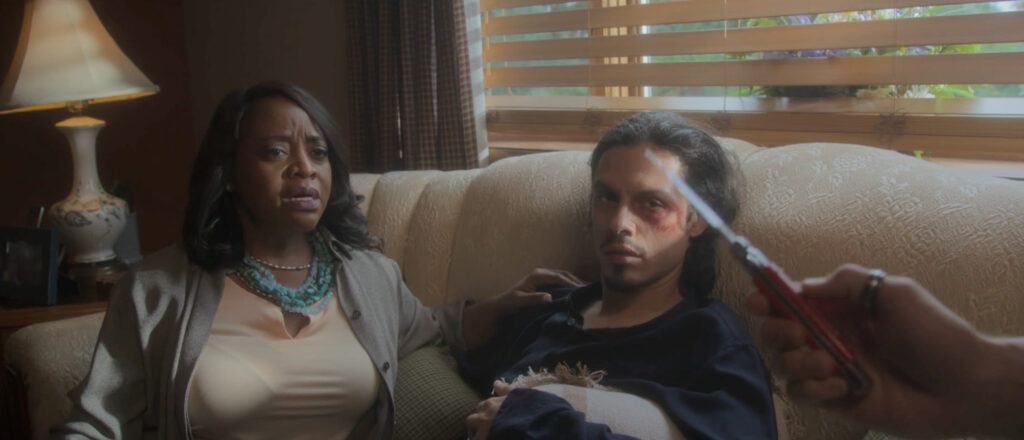
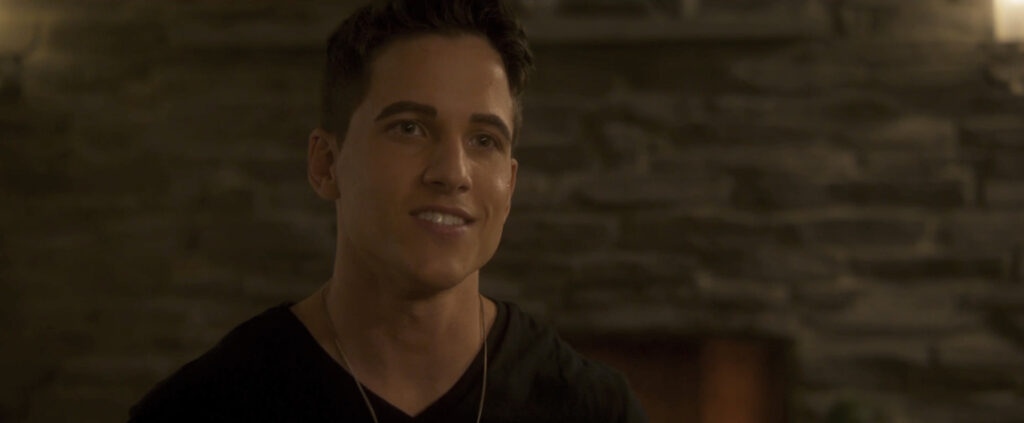
Q40: She knocked it out of the park for sure!
So, we’ve focused on the recovery aspect of the film but at its core, it’s more of a thriller, with pretty heavy elements of horror in it. A little birdie told me that you’re a big horror fan. Why do you think you are drawn to the genre?
Barry Jay: This one I’ve actually got a very strong answer for, because in my many, many, many years of therapy, therapists have talked with me about my love for horror since childhood and what it could possibly mean. One therapist really summed it up for me – that as a kid, I was so scared all the time and that fear never ended. I just didn’t know what to expect next. I lived in it. When I watched a horror movie, the fear ended. It aired for 90 minutes, and then I got to know that feeling of what it’s like to have the fear end. That one therapist said that’s what I was drawn to.
Q40: Very interesting, that makes a lot of sense. And which horror film/ director has inspired you most?
Barry Jay: I would say my first and foremost is always a tie. It really is. I’ve not been able to decide between Halloween by John Carpenter, and Night of the Living Dead by George Romero. Those two men have inspired me beyond words, and those two movies are hands down my favorite. They were both groundbreakers.
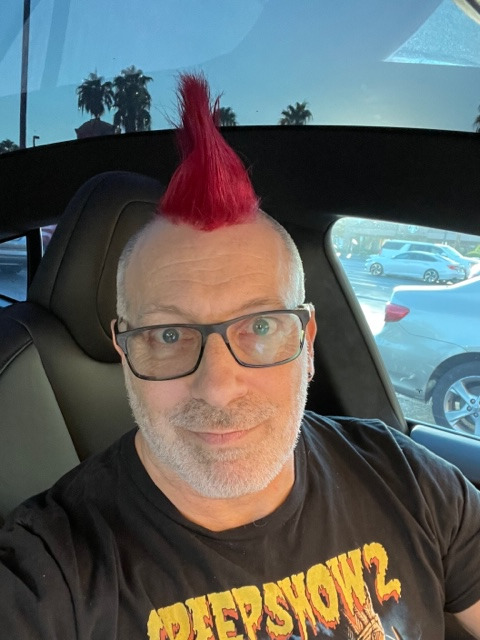
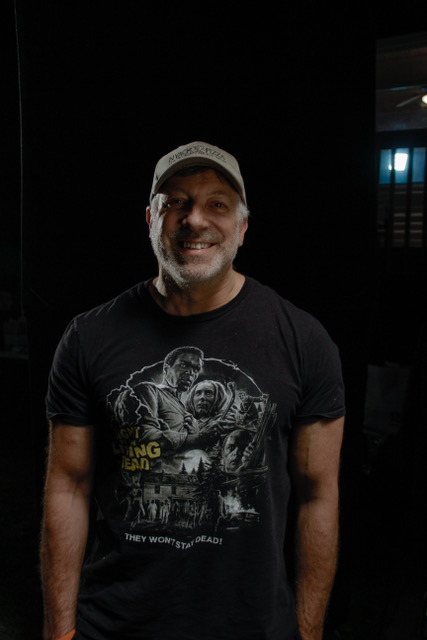
Q40: Halloween is my favorite too!
My last question is what do you want audiences to take away from your film?
Barry Jay: I hope they take away that it is a revenge thriller and yes, obviously there’s some bad people in it, but the takeaway, I hope, is the power of forgiveness. I can’t speak for everyone, but for me, forgiveness was a huge thing that sobriety gave to me. Not to forgive what people have done, but to forgive them so I could let go. I’m a big believer in that.
And if I have to forgive myself for the person I was, which I did, then how can I not forgive my dad for who he was? Especially since I actually saw as he got older and as I stayed sober, that he had changed. If I’m allowed to change, he is allowed to change. I hope the takeaway is that there is some magic to be found in forgiveness, even if only for your own self to drop the rock, to live lighter, walk freer.
But I also do hope it sends a message to people – you never know who’s sitting in the audience. You could be sitting right behind somebody who abuses their kid. I hope when they see this it causes them to look hard in the mirror. And though what Shane does may not happen to them, I hope it shows them that it could actually backfire on them and one day their life could be ruined because of it. Because if you’re not going to stop because it’s wrong, at least stop because you don’t want to mess your own life up. But either way, you’ve got to stop. I hope it inspires that change in some people.
Q40: Thanks so much for your candor and your time Barry. Best of luck with the release of the film!
The Way Out comes to digital platforms worldwide on February 10. Check out an exclusive clip below:

